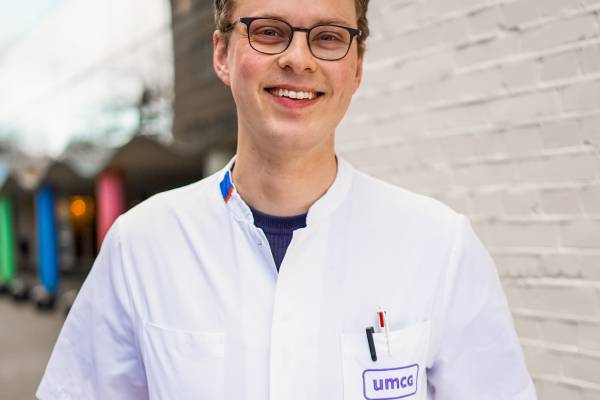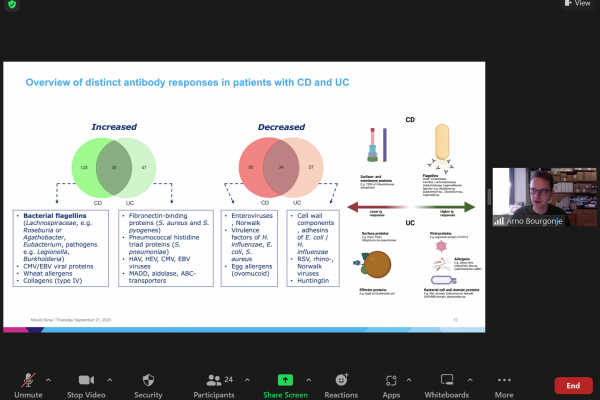Guest Presentation at miGut-Health Consortium Meeting
The latest General assembly meeting of the miGut-Health project, held virtually on 21 September, was opened by a special invited guest, Dr Arno R. Bourgonje, postdoctoral researcher from the University Medical Center Groningen, Netherlands (miGut-Health partner institution represented by Prof. Rinse K. Weersma) and from the Icahn School of Medicine at Mount Sinai, New York, USA. Dr Bourgonje kindly accepted our invitation to present his latest article on the specific results of phage-display immunoprecipitation (PhIP-Seq) sequencing of the antibody epitope repertoire in inflammatory bowel disease (IBD).
The aim of the study was to detect distinct antibody signatures in patients with IBD at an unprecedented resolution. The study has analysed antibodies against 344,000 different antimicrobial, immune, and food antigens in 497 individuals with IBD compared with 1,326 controls. IBD was characterised by 373 differentially abundant antibody responses, with 17% shared by both forms of IBD, 55% unique to Crohn’s disease (CD), and 28% unique to ulcerative colitis (UC), respectively. During the presentation, our guest expert mentioned some of the aspects that make this technology unique, such as that antibodies are detected in a high-throughput fashion, that selection of antigens can be driven by the scientists and that there is now a rapid development of novel antigen epitope libraries.
However, some of the disadvantages constitute the complexity of the workflow, length constraints of the presented peptides that can be scaled up to "only" 90 amino acids, as well as the fact that only proteins are detected, while glycans and other antigens can be missed. Finally, Dr Bourgonje gave an overview of the clinical potential of antibody epitope repertoires in IBD, such as for (a) diagnosis – i.e. for classification of CD/UC, (b) prediction of disease activity and disease course, (c) prediction of response to medical treatment, (d) prediction of risk and success of surgical treatment/intervention, and ultimately (e) disease prevention.
In summary, the presentation was of great interest to our consortium partners and scientific advisors, especially because PhIP-Seq is a technology that we plan to use in work package 1 for identification of novel biomarkers and antigens. The invited talk marks the beginning of our new practice to open each consortium meeting with the specialised presentation of an invited speaker from within or outside of the consortium, on a topic closely related to miGut-Health, before continuing with discussion on work packages and project progress.



